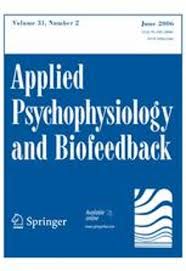Resultaten Onderzoek
U kunt publicaties vinden door te kiezen voor een categorie of een steekwoord. Alle artikelen uit betreffende categorie of met betreffend steekwoord verschijnen dan hier beneden.
Categorieën
Steekwoorden
Categorieën
Steekwoorden
- Toon alle
- ADHD
- Angst/Paniek
- Bloeddruk
- Burnout
- Chronische pijn
- Cognitieve functie
- Cortisol/DHEA
- Dementie
- Depressie
- Diabetes
- Global Coherence
- Hart- & Vaatziekten
- Intuitie & Bewustzijn
- Kanker
- Kinderen/jeugd
- Kosten
- Leiderschap
- Meditatie/Mindfulness
- Metabool syndroom
- Obesitas/eetstoornis
- PTSS
- Schizofrenie
- Slaap & vermoeidheid
- Social Coherence
- Stress
- Veerkracht
- Wetenschap HRV & Coherentie
- Zwangerschap
Short-Term Effects of Heart Rate Variability Biofeedback on Working Memory
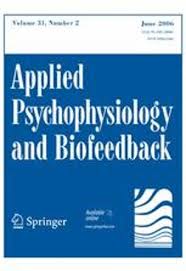
Drawing upon the well-documented impact of long-term heart rate variability biofeedback (HRVB) on psychophysiological responses, this study seeks to explore the short-term effects arising from a single HRVB session during and after paced breathing exercise. The research aligns with the neurovisceral integration model, emphasizing the link between heart rate variability (HRV) levels and cognitive performance. Therefore, a randomized controlled trial employing a between-subjects design was conducted with 38 participants. Each
lees verder...Psychophysiological coherence training to moderate air traffic controllers’ fatigue on rotating roster

The nature of the current rotating roster, providing 24-h air traffic services over five irregular shifts, leads to accumulated fatigue which impairs air traffic controllers’ cognitive function and task performance. It is imperative to develop an effective fatigue risk management system to improve aviation safety based upon scientific approaches. Two empirical studies were conducted to address this issue. Study 1 investigated the mixed effect of circadian rhythm disorders and resource depletion on controllers’ accumulated fatigue. Then, study 2 proposed a potential biofeedback solution of quick coherence technique which can mitigate air traffic controllers’ (ATCOs’) fatigue while on
lees verder...Heart Rate Variability Biofeedback to Treat Anxiety in Young People With Autism Spectrum Disorder: Findings From a Home-Based Pilot Study
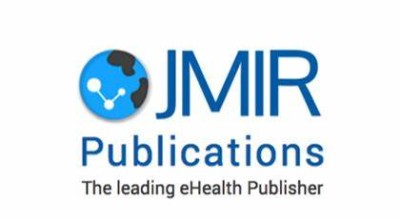
Background: People with autism spectrum disorder (ASD) frequently experience high levels of anxiety. Despite this, many clinical settings do not provide specialist ASD mental health services, and demand for professional support frequently outstrips supply. Across many sectors of health, investigators have explored digital health solutions to mitigate demand and extend the reach of professional practice beyond traditional clinical settings.
lees verder...
Following the Rhythm of the Heart: HeartMath Institute’s Path to HRV Biofeedback
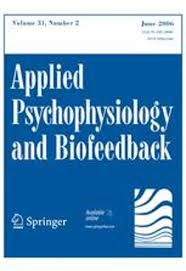
This paper outlines the early history and contributions our laboratory, along with our close advisors and collaborators, has made to the field of heart rate variability and heart rate variability coherence biofeedback. In addition to the many health and wellness benefits of HRV feedback for facilitating skill acquisition of self-regulation techniques for stress reduction and performance enhancement, its applications for increasing social coherence and physiological synchronization among groups is also discussed. Future research directions and applications are also suggested.
lees verder...Psychophysical Coherence Training Regulating Air Traffic Controller's Heart Rate Variability and Resilience to Fatigue

Abstract. Heart Rate Variability (HRV) can reflect individuals’ cognitive workload objectively. HRV measurement is a non-invasive method to evaluate relevant physiological changes in a human body. Physiological changes and cognitive processes are associated with the cardiac dynamic autonomic control, and thus to influence individuals’ ability to cope with fatigue and achieve resilience. As a dynamic process to be learned, resilience can be formed and improved through Quick Coherence Training in a short time. To study the regulatory effects of
lees verder...Does Heart Rate Variability Biofeedback Enhance Executive Functions Across the Lifespan? A Systematic Review

Abstract
The scope of this systematic review was to summarize the existing literature on the effects of heart rate variability biofeedback (HRV-BF) on executive functions (EFs) across the lifespan. Specifically, it aimed to investigate the factors that may affect the efficacy of HRV-BF interventions, such as the study population, duration and intensity of the intervention, or the technical equipment. This review was conducted according to the Preferred Reporting Items for Systematic Reviews and Meta-Analyses (PRISMA) guidelines. Studies that
The effect of HRVB training on young soccer players' skill performance

ABSTRACT
The present study aimed to evaluate the influence of heart rate variability biofeedback (HRVB) training on selected soccer skills performance. The objective of this study was to evaluate the effect of HRVB on soccer players’ reactive motor skill test (RMST), sprint time, reactive agility, passing time, and passing accuracy. Participants of this study were Malaysian high school soccer players (n = 32), with mean age of 15.21 ± 1.85, who were assigned randomly into two groups: Experimental groups and control group. Each group had 16
Heart rate variability biofeedback in chronic disease management: A systematic review
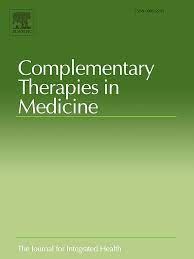
Background: Heart rate variability biofeedback (HRVB) is a non-pharmacological intervention used in the management of chronic diseases.
Method: A systematic search was performed according to eligibility criteria including adult chronic patients, HRVB as main treatment with or without control conditions, and psychophysiological outcomes as dependent variables.
Results: In total, 29 articles were included. Reported results showed the feasibility of HRVB in chronic patients without adverse effects.
Mobile Heart Rate Variability Biofeedback as a Complementary Intervention After Myocardial Infarction: a Randomized Controlled Study
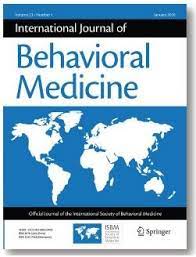
Methods
Forty-six outpatients aged 41 to 79 years with a documented MI were randomized to HRV-BF versus usual care. Generalized estimating equation (GEE) analyses were performed to test improvements in measures of short- and long-time HRV, namely, the standard deviation of the normal-to-normal intervals (SDNN) and well-being after 12 weeks of HRV-BF.
One-Minute Deep Breathing Assessment and its Relationship to 24-h Heart Rate Variability Measurements

Background: Heart rate variability (HRV), the change in the time intervals between successive pairs of heartbeats, is influenced by interdependent regulatory systems operating over different time scales to adapt to psychological challenges and environmental demands. Low ageadjusted HRV is predictive of upcoming health challenges in healthy people as well as a wide range of diseases in patients and correlates with allcause mortality. 24h HRV recordings are considered the “gold standard” and have greater predictive power on health risk
lees verder...Effect of Quick Coherence Technique on Psychophysiological Coherence, Heart Rate, Stress, Anxiety, Depression and Feeling State in Young Adults in India

HeartMath technology is an innovative technique to improving emotional mental health. A small-scale study was conducted to investigate the effect of quick coherence technique on psychophysiological coherence, stress, anxiety, depression and feeling state in young adults in India. Present study is in line with the past research done by S.D.Edwards (2016) on ‘Influence of Heartmath Quick Coherence Technique on Psychophysiological Coherence and Feeling States’. Six postgraduate students who complained of stress, anxiety and depression were
lees verder...Neurophysiological Approach by Self-Control of Your Stress-Related Autonomic Nervous System with Depression, Stress and Anxiety Patients.

Abstract: Background: Heart Rate Variability Biofeedback (HRVB) is a treatment in which patients learn self-regulation of a physiological dysregulated vagal nerve function. While the therapeutic approach of HRVB is promising for a variety of disorders, it has not yet been regularly offered in a mental health treatment setting. Aim: To provide a systematic review about the efficacy of HRV-Biofeedback in treatment of anxiety, depression, and stress related disorders. Method: Systematic review in PubMed and Web of Science
lees verder...A meta-analysis on heart rate variability biofeedback and depressive symptoms.

Heart rate variability biofeedback (HRVB) has been used for a number of years to treat depressive symptoms, a common mental health issue, which is often comorbid with other psychopathological and medical conditions. The aim of the present meta-analysis is to test whether and to what extent HRVB is effective in reducing depressive symptoms in adult patients. We conducted a literature search on Pubmed, ProQuest, Ovid PsycInfo, and Embase up to October 2020, and identified 721 studies.
lees verder...Consciousness, The Human Heart and The Global Energetic Field Environment
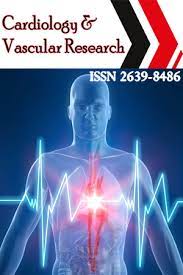
The Global Coherence Initiative (GCI) is a science-based, international effort that conducts research on interactions between humans and the Earth’s magnetic field environment as well as collective intention on promoting peace, and harmony.In order to carry out one aspect of the interconnectedness research, GCI has created a Global Coherence Monitoring System (GCMS), which is comprised of a network of six magnetometers specifically designed to measure geomagnetic and resonant frequencies in Earth’s
lees verder...Comparative study of the impact of active meditation protocol and silence meditation on heart rate variability and mood in women

Aim: The aim of this study was to understand the impact of an active meditation protocol on heart rate variability (HRV) and mood in women as compared to breath-focused silence meditation. Materials and Methods: Women experienced two different practices of 20 min each: (a) control group: silence meditation focusing on breath and (b) experiment group: active meditation that included four activities, each lasting for 5 minutes – (1) simple humming, (2) coherent heart-focused breathing with 5s of inhalation and 5s of exhalation, (3) coherent
lees verder...Norms of HRV in Cancer

Recent research has begun to show the role of the activity of the vagus nerve in cancer prognosis. However, it remains unknown whether cancer severity can impair vagal nerve activity. This study combined data (N = 657) of five different cancers (colorectal, pancreas, prostate, lung and ovarian) concerning patients’ Heart Rate Variability (HRV), a vagal nerve activity index. These data were compared to HRV levels of a healthy sample in another study. In addition, we examined the moderating effects of age, gender and cancer stage on HRV. The mean
lees verder...The relationship between vagal nerve activity and clinical outcomes in prostate and non-small cell lung cancer patients

Abstract. Recent studies suggest that vagal nerve activity, indexed by heart rate variability (HRV), could have a prognostic role in cancer. However, most studies did not control adequately for confounders and included cardiac patients. Furthermore, the validity of this prognostic role needs to be tested in different types of cancer. The present study tested the prognostic role of HRV in prostate cancer (PC) and non-small cell lung cancer (NSCLC) patients, using a historical prospective design. HRV was derived from brief 10 sec ECGs obtained at
lees verder...You may need the vagus nerve to understand pathophysiology and to treat diseases
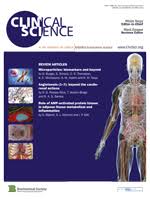
Can different pathophysiological mechanisms and risk factors leading to various diseases be linked with altered transmission of signals by one common pathway? The present article provides evidence for the hypothesis that adequate vagal nerve activity reduces the risk ofmajor diseases, via common basic mechanisms and interim risk factors. These diseases include cardiovascular disease, cancer, Alzheimer’s disease and the metabolic syndrome. Three basic mechanisms contribute to such illnesses: local oxidative stress and DNA damage, inflammatory
lees verder...Heart Rate Variability Biofeedback Improves Emotional and Physical Health and Performance: A Systematic Review and Meta Analysis
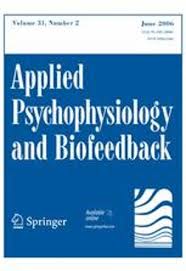
We performed a systematic and meta analytic review of heart rate variability biofeedback (HRVB) for various symptoms and human functioning. We analyzed all problems addressed by HRVB and all outcome measures in all studies, whether or not relevant to the studied population, among randomly controlled studies. Targets included various biological and psy-chological problems and issues with athletic, cognitive, and artistic performance. Our initial review yielded 1868 papers, from which 58 met inclusion criteria. A significant small to moderate effect size was found favoring HRVB, which does not differ from that of other effective treatments. With
lees verder...Heart Rate Variability, Health and Well-Being: A Systems Perspective

The development of a new tool, analytic device, or approach frequently facilitates rapid growth in scientific understanding, although the process is seldom linear. The study of heart rate variability (HRV) defined as the extent to which beat-to-beat variation in heart rate varies, is a rapidly maturing paradigm that integrates health and wellness observations across a wide variety of biomedical and psychosocial phenomena and illustrates this nonlinear path of development. The utility of HRV as an analytic and interventive technique goes far beyond its original application as a robust predictor of sudden cardiac death. This Research Topic aims to provide a conceptual
lees verder...The Impact of HeartMath Resiliency Training on HealthCare Providers

Background: Health care providers must think clearly and make critical decisionsunder stressful circumstances. Providing effective strategies for managing stress in the moment helps mitigate the physical, emotional, and psychological impacts associated with caring for others and promotes resiliency. Staff may also utilize these techniques with patients and their families to help alleviate the symptoms of stress that may be experienced as the result of illness. Aim: The purpose of this study was to measure whether HeartMath techniques reduce stress and improve resiliency in health care providers. Methods: Study participants were asked to complete the Personal and Organizational
lees verder...Driving organizational entrainment through spiritual leadership
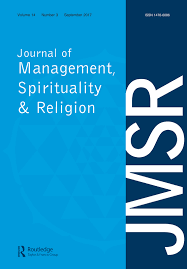
Connectedness is considered as one of the defining characteristics of the twenty-first century, with organizational research highlighting the importance of time, pace, rhythm, and cycles in business through the phenomenon of entrainment. Entrainment is a process of synchronization and connectedness within, between, and across rhythmic activities. This conceptual paper argues that applying spiritual leadership at each level of an organization can drive the (inter)connectedness in today’s organizations through entrainment. First, the concept of entrainment is introduced, with a focus on intraentrainment. The learnings from entrainment are then applied to spiritual
lees verder...A 6-Week Worksite Positivity Program Leads to Greater Life Satisfaction, Decreased Inflammation, and a Greater Number of Employees with A1C Levels in Range Published: 2019

Objective: To determine whether a 6-week Positivity Program could impact employee cardiovascular inflammation, blood sugars, cortisol, dehydroepiandrosterone (DHEA), and/or life satisfaction.
Methods: Pre- and post-study blood draw and life satisfaction questionnaire tracked changes in 10 cardiovascular and inflammatory
lees verder...Long-Term Study of Heart Rate Variability Responses to Changes in the Solar and Geomagnetic Environment

This long-term study examined relationships between solar and magnetic factors and the time course and lags of autonomic nervous system (ANS) responses to changes in solar and geomagnetic activity. Heart rate variability (HRV) was recorded for 72 consecutive hours each week over a five-month period in 16 participants in order to examine ANS responses during normal background environmental periods. HRV measures were correlated with solar and geomagnetic variables using multivariate linear regression analysis with Bonferroni
lees verder...Emotion Regulation After Acquired Brain Injury: A Study of Heart Rate Variability, Attentional Control, and Psychophysiology
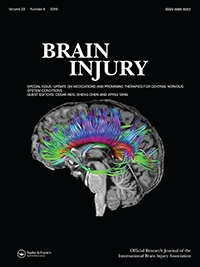
Primary Objective: To examine the efficacy of heart rate variability biofeedback (HRV-BF) to treat emotional dysregulation in persons with acquired brain injury.
Design: A secondary analysis of a quasi-experimental study which enrolled 13 individuals with severe chronic acquired brain injury participating in a community-based programme. Response-to-treatment was measured with two HRV resonance indices (low frequency
Heart Rate Variability: New Perspectives on Assessment of Stress and Health Risk at the Workplace

Introduction: Cardiovascular diseases are the highest cause of death in the world. Many of these deaths may be workplace related. Long hours at work seem to be influencing the increased risks of heart diseases. Workplace stress can be defined as the “discrepancies between the physiological demands within a workplace and the inability of employees to either manage or cope with such work demands.” The varied nature and perception of stress are exemplified from literature that shows stress being either a stimulus, or a response, or a stimulus–
lees verder...Correlation Between Changes in Local Earth's Magnetic Field and Cases of Acute Myocardial Infarction

Het belangrijkste doel van deze studie was om mogelijke correlaties te onderzoeken tussen de periodiek wijzigende kracht van het lokale aardmagnetisch veld en de incidentie van hartinfarcten. Deelnemers aan het onderzoek waren 435 mannen en 268 vrouwen die de diagnose hartinfarct hadden tijdens de periode van 1-1-2016 tot 31-12-2016 en behandeld werden op de afdeling cardiologie in het ziekenhuis van de Litouwse Universiteit van Health Sciences (LUHS), Kauno klinikos.
lees verder...Combining Biofeedback with Stress Management Interventions: A Systematic Review of Physiological and Psychological Effects
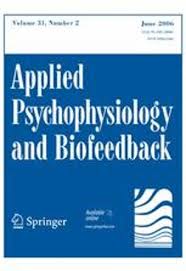
Current mental healthcare systems experience difficulties meeting the challenges of a growing population with elevated stress symptoms. Outpatient stress management interventions have already proven to be effective in routine care and recent technological advances now allow to expand such interventions, for example by adding a physiological component like biofeedback. Adding biofeedback to stress management interventions appears promising, but there is a lack of insight into the general conceptualization and evaluation of the resulting
lees verder...
The Influence of Heart Coherence on Synchronization Between Human Heart Rate Variability and Geomagnetic Activity

All biological systems, which are embedded within the Sun and Earth’s magnetospheres, are exposed to invisible fluctuating magnetic fields that span a wide range of frequencies [1]. It is well known that geomagnetic field line resonances and the Schumann resonances, which exist in the cavity between Earth and the ionosphere, generate a range of resonant frequencies that directly overlay those of the human brain, autonomic nervous system (ANS), and cardiovascular system. Of all the physiological systems studied, the rhythms
lees verder...Exploring a 1-Minute Paced Deep-Breathing Measurement of Heart Rate Variability as Part of a Workers' Health Assessment
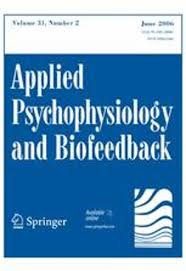
Low heart rate variability (HRV) is related to health problems that are known reasons for sick-leave or early retirement. A 1-minute-protocol could allow large scale HRV measurement for screening of health problems and, potentially, sustained employability. Our objectives were to explore the association of HRV with measures of health. Cross-sectional design with 877 Dutch employees assessed during a Workers’ Health Assessment. Personal and job characteristics, workability, psychological and mental problems, and lifestyle were measured with questionnaires. Biometry was measured (BMI, waist circumference, blood pressure, glucose, cholesterol). HRV was assessed with a 1-minute paced deep-breathing protocol and expressed as mean heart rate range (MHRR). A low MHRR indicates a higher health risk.
lees verder...Self-Regulatory Biofeedback Training: An Intervention to Reduce School Burnout and Improve Cardiac functioning in college students
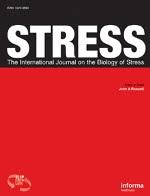
With the detrimental relationship between school burnout and physiological and cognitive functioning now well documented, interventions to ameliorate school burnout symptomology are needed. This study examined the effectiveness of a self-regulatory biofeedback intervention program (Heart RateVariability Coherence Biofeedback Training [HRVCB]) in contrast to a protocol demonstrated to produce cognitive and physiological improvements (a high intensity interval training protocol [HIIT]) as well as a wait-list control condition at decreasing school
lees verder...Heart Rate Variability and Cognitive Bias Feedback Interventions to Prevent Post-Deployment PTSD: Results from a Randomized Controlled Trial

There is a long history of pre-deployment PTSD prevention efforts in the military and effective pre-deployment strategies to prevent post-deployment PTSD are still needed. Materials and Methods: This randomized controlled trial included three arms: heart rate variability biofeedback (HRVB), cognitive bias modification for interpretation (CBM-I), and control. The hypothesis was that pre-deployment resilience training would result in lower post-deployment PTSD symptoms compared with control. Army National Guard soldiers (n =
lees verder...Groepsverslag Stress REM vragenlijsten mei 2018

Het Soffos onderzoeksinstituut heeft in 2018 de resultaten van 1129 HeartMath coaching interventies geevalueerd. De slotconclusie van het rapport is dat de cliënten wezenlijk verbeterd zijn in hun omgang met stress door de coaching volgens de HeartMath methodiek. Bij alle dimensies is sprake van een significante verbetering van de gemiddelde scores op tijdstip T2 ten opzichte van tijdstip T1. De P-waarden zijn daarbij allen onder de 0,001, dit betekent dat de kans dat de uitslag beïnvloed wordt door andere omstandigheden dan de HeartMath coaching marginaal is.
lees verder...Long-Term Study of Heart Rate Variability Responses to Changes in the Solar and Geomagnetic Environment

Dit langetermijn onderzoek richtte zich op relaties tussen zonne- en geomagnetische activiteit en mogelijke vertragingen in het autonome zenuwstelsel. Bij 16 deelnemers werd de hartslagvariabiliteit (HRV) gemeten tijdens 72 aaneengesloten uren per week over een periode van vijf maanden. Met het doel om reacties van het autonome zenuwstelsel te volgen in verder gewone omstandigheden. Over het geheel genomen bevestigt de studie dat het autonome zenuwstelsel reageert op dagelijkse fluctuaties. De reactietijd en de tijd waarop de reacties
lees verder...New Frontiers in Heart Rate Variability and Social Coherence Research: Techniques, Technologies, and Implications for Improving Group Dynamics and Outcomes

Concepten rond coherentie worden gezien als centrale thema’s binnen de kwantumfysica, fysiologie en sociale wetenschappen. Er zijn verschillende soorten coherentie, hoewel de term altijd een harmonieuze relatie, correlaties en verbindingen tussen de verschillende onderdelen van een systeem impliceert. Een specifieke meting die is afgeleid van de hartritmevariabiliteit (HRV) biedt een zekere maatstaf voor fysiologische coherentie. Een ander type van coherentie, sociale coherentie, heeft betrekking op de harmonieuze
lees verder...An Overview of HRV Norms and Metrics

Healthy biological systems exhibit complex patterns of variability that can be described by mathematical chaos. Heart rate variability (HRV) consists of changes in the time intervals between consecutive heartbeats called interbeat intervals (IBIs). A healthy heart is not a metronome. The oscillations of a healthy heart are complex and constantly changing, which allow the cardiovascular system to rapidly adjust to sudden physical and psycho-logical challenges to homeostasis. This article briefly reviews current perspectives on the mechanisms that generate 24 h, short-term (~5 min), and ultra-short-term (<5 min) HRV, the importance of HRV, and its implications
lees verder...Identification of a Group's Physiological Synchronization with Earth's Magnetic Field

Er is een nieuwe analysetechniek ontwikkeld en gevalideerd voor de beoordeling van de mate van fysiologische synchronisatie in een groep mensen en veranderingen in het aardmagnetisch veld, op basis van intervallen in hun hartritme. De nieuwe analysetechniek werd vervolgens gebruikt om clusters van dit soort patronen van synchronisatie te meten in een groep van 20 personen over een periode van twee weken. Om relevante relaties tussen de deelnemers en de gegevens van het lokale magnetisch veld vast te stellen werd per persoon een algoritme voor
lees verder...Synchronization of Human Autonomic Nervous System Rhythms with Geomagnetic Activity in Human Subjects

Een verband tussen het menselijk zenuwstelsel en het aardmagnetische veld werd zichtbaar na een continue monitoring van de hartritmevariabiliteit (HRV) en de wisselende geomagnetische activiteiten. Een groep van 10 personen werd gedurende 31 dagen in het dagelijkse leven gevolgd en gemeten. In een tijdreeksanalyse kon men een correlatie identificeren tussen reacties van het autonome zenuwstelsel van de groep op verschillende dynamische veranderingen in de zonnewinden, kosmische straling en het omringende
lees verder...The effect of heart rate variability biofeedbacktraining on stress and anxiety: a meta-analysis
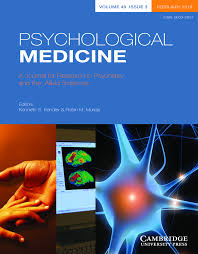
Background.Some evidence suggests that heart rate variability (HRV) biofeedback might be an effective way to treat anxiety and stress symptoms. To examine the effect of HRV biofeedback on symptoms of anxiety and stress, we conducted a meta-analysis of studies extracted from PubMed, PsycINFO and the Cochrane Library.Methods.The search identified 24 studies totaling 484 participants who received HRV biofeedback training for stress and anxiety. We conducted a random-effects meta-analysis. Results.The pre-post within-group effect size
lees verder...Heart rate variability biofeedback therapy and graded exercise training in management of chronic fatigue syndrome

OBJECTIVE: Chronic fatigue syndrome (CFS) is characterised by persistent fatigue, exhaustion, and several physical complaints. Research has shown cognitive behavioural therapy (CBT) and graded exercise training (GET) to be the most effective treatments. In a first step we aimed to assess the efficacy of heart rate variability biofeedback therapy (HRV-BF) as a treatment method comprising cognitive and behavioural strategies and GET in the pilot trial. In a second step we aimed to compare both interventions with regard to specific
lees verder...The aim of this pilot study was to investigate the effects of an intervention consisting of mental coaching combined with either electro encephalogram (EEG) alphapower feedback or heart rate variability (HRV) feedback on HRV, EEG outcomes and self-reported factors related to stress, performance, recovery and sleep quality in elite athletes. A prospective pilot study was performed with two distinct cohorts. Soccer players were provided with four sessions of mental coaching combined with daily HRV biofeedback (Group A); track and field
lees verder...Building Resilience in an Urban Police Department

Objective:The aim of this study is to examine a resilience training intervention that impacts autonomic responses to stress and improves cardiovascular risk, psychological, and physiological outcomes in police. Methods: Officers [(n=38) 22 to 54 years] modified emotional and physical responses to stress using self-regulation. Measurements include psychological and physiological measures [eg, heart rate variability (HRV), blood pressure, C-reactive protein)] obtained at three time intervals. Results: Age was significantly (P<0.05) associated with
lees verder...The Global Coherence Initiative: A Global Psychological Paradigm for Health Promotion
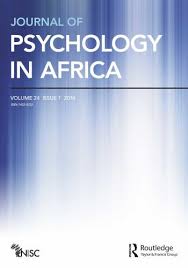
Dit overzichtsartikel brengt het belang naar voren van een wereldwijd initiatief ter bevordering van gezondheid en welbevinden dat psychologisch georiënteerd is. Het bespreekt het concept voor een collectief bewustzijn en op het hart gebaseerd moreel bewustzijn als instrument voor gezondheidszorg. Het artikel is gestoeld op een Zuid-Afrikaanse samenwerking binnen het Global Coherence Initiative, die tot doel heeft de coherentie en onderlinge verbondenheid in een inheemse gemeenschap te ondersteunen.
lees verder...Effectiviteit van hartritmevariabiliteit-biofeedback als aanvulling bij behandeling van depressie en posttraumatische stressstoornis
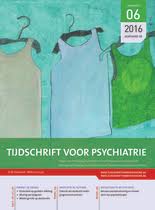
ACHTERGROND: Hartritmevariabiliteitbiofeedback (hrvb) is een non-invasieve behandelwijze waarbij de patiënt verondersteld wordt te werken aan zelfregulatie van een verstoorde N.-vagusfunctie. De behandeling met hrvb is wellicht klinisch relevant bij stressgerelateerde stoornissen, maar wordt weinig toegepast in de reguliere behandeling. DOELOnderzoek van effectiviteit van hrvb als mogelijk psychofysiologische aanvulling bij behandeling van angst, depressie en de posttraumatische stressstoornis (ptss). METHODE:
lees verder...HeartMath and Ubuntu Integral Healing Approaches for Social Coherence and Physical Activity
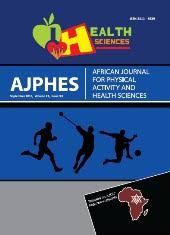
Dit onderzoek werd ingegeven door de vele sociale gezondheidsproblemen op deze planeet. Het doel is om de HeartMath methode en Ubuntu te introduceren als complementaire, integrale genezingsmethoden ter bevordering van sociaal bewustzijn, coherentie en diverse vormen van lichamelijke activiteit. Integrale gezondheidsthema ’s die besproken worden omvatten holisme, bewustzijn, energie, onderling verbondenheid in relaties, sociale coherentie en ondersteunende hulpbronnen, met name empathie. Bijzondere focus ligt op moreel
lees verder...Validity of (Ultra-)Short Recordings for Heart Rate Variability Measurements

Objectives
In order to investigate the applicability of routine 10s electrocardiogram (ECG) recordings for time-domain heart rate variability (HRV) calculation we explored to what extent these (ultra-)short recordings capture the “actual” HRV.
Methods
The standard deviation of normal-to-normal intervals (SDNN) and the root mean square of successive differences (RMSSD) were measured in 3,387 adults. SDNN and RMSSD were assessed from (ultra)short recordings of 10s(3x), 30s, and 120s and compared to 240s–300s (gold
Human Heart Rhythm Sensitivity to Earth Local Magnetic Field Fluctuations

In dit document wordt de gevoeligheid van het menselijke hartritme voor de schommelingen van lokale aardmagnetische velden geanalyseerd. De gegevens zijn verzameld tijdens een langetermijn onderzoek waarbij de hartritmevariabiliteit (HRV) van 17 vrouwelijke vrijwilligers gecorreleerd werd aan gemeten schommelingen van de aardmagnetische signalen. De magnetische signalen werden verzameld met behulp van het eerste wereldwijde netwerk van GPS-detectoren (GPS time stamped detectors), die zijn ontworpen voor het continu
lees verder...Cardiac Coherence Training to Reduce Anxiety in Remitted Schizophrenia, a Pilot Study
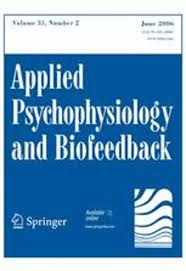
Health care that addresses the emotional regulation capacity of patients with schizophrenia confronted with daily stress may contribute to a less anxious life. A psycho-physiological training [cardiac coherence training(CCT)] focusing on emotion regulation is known to decrease anxiety for healthy individuals. We performed a pilot cross sectional survey to explore the benefits of CCT for clinically stable patients with schizophrenia. Ten patients were enrolled in the program consisting of twelve weekly 1-h session programs monitored over a 2-month
lees verder...Physical Activity, Mindfulness Meditation, or Heart RateVariability Biofeedback for Stress Reduction

Abstract: In contemporary western societies stress is highly prevalent, therefore the need for stress-reducingmethods is great. This randomized controlled trial compared the efficacy of self-help physical activity (PA), mindfulness meditation (MM), and heart rate variability biofeedback (HRV-BF) in reducing stress and its related symptoms. We randomly allocated 126 participants to PA, MM, or HRV-BF upon enrollment, of whom 76 agreed to participate. The interventions consisted of psycho-education and an introduction to the specific
lees verder...Some Southern African Views on Interconnectedness with Special Reference to Indigenous Knowledge

Het Global Coherence Initiative (GCI) verricht baanbrekend onderzoek naar verbondenheid, ter bevordering van globale coherentie, bewustzijn en gezondheidszorg vanuit het hart. Een netwerk van ultragevoelige detectoren van het magnetische veld is strategisch verspreid over de aarde. Eén ervan is geplaatst in een privé wildpark in KwaZulu-Natal en maakt daar ook lokaal onderzoek mogelijk.Thema’s uit de Zuid-Afrikaanse inheemse kennis op het gebied van onderlinge verbondenheid worden meegenomen, teneinde het initiatief een relevante
lees verder...Applying Resilience Promotion Training Among Special Forces Police Officers

Police Special Forces (a.k.a. special weapons and tactics [SWAT]) officers are tasked with responding to the most critical situations, including incidents that require specialized skills and equipment beyond typical policing activities. In this study, we tested the feasibility of applying Arnetz and colleagues’ resilience promotion training that was developed for patrol officers to SWAT team officers (n = 18). The resilience promotion training program included psychoeducation focused on police stress and resilience, and the practice of resilience
lees verder...Biofeedback Intervention for Stress, Anxiety, and Depression among Graduate Students in Public Health Nursing

Globally, graduate students have been found to have high prevalence of mental health problems. With increasing severity of mental health problems on university campuses and limited resources for mental health treatment, alternative interventions are needed.This study investigated the use of biofeedback training to help reduce symptoms of stress, anxiety, and depression. A sample of 60 graduate students in public health nursing was randomly assigned to either the biofeedback intervention or the control group. Results indicated that biofeedback
lees verder...Heart Coherence: A New Tool in the Management of Stress on Professionals and Family Caregivers of Patients with Dementia
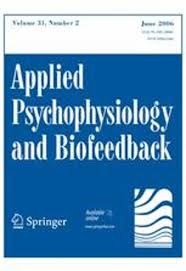
We describe a stress management intervention intended to reduce the damage and stress impact on the heart physiology and function of a group of caregivers (professional and non-professional) who work with patients with dementia. The intervention consisted in applying heartcoherence techniques in a population of 72 caregivers of patients with dementia (42 professional and 29 non-pro-fessional caregivers) who had high scores in heart stress and burden tests. Six months after the training they were able to
lees verder...An Institutional Case Study: Emotion Regulation With HeartMath at Santa Cruz County Children's Mental Health

This case study from Santa Cruz County Children’s Mental Health Agency (CMH), California, reviews the use of measurement of heart rate variability (HRV) to enhance emotional regulation of patients. CMH serves seriously emotionally disturbed youths, many of whom have been separated from their parents for a prolonged period or have been vulnerable without the consistent presence of their caregivers. In this study, the HRV pattern was calculated as high coherence, medium coherence, or low coherence. According to Thurber et al, heart
lees verder...Heart Rate Variability: New Perspectives on Physiological Mechanisms, Assessment of Self-regulatory Capacity, and Health Risk

Heart rate variability, the change in the time intervals between adjacent heartbeats, is an emergent property of interdependent regulatory systems that operates on different time scales to adapt to environmental and psychological challenges. This article briefly reviews neural regulation of the heart and offers some new perspectives on mechanisms underlying the very low frequency rhythm of heart rate variability. Interpretation of heart rate variability rhythms in the context of health risk and physiological and
lees verder...Heart Coherence Training Combined with Back School in Patients with Chronic Non-specific Low Back Pain
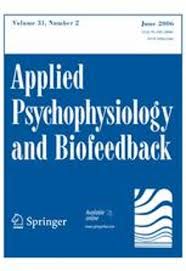
The aim of this study was to explore on which variables a stress reduction program based on heartcoherence can enhance the effects of a back school (BS) inpatients with chronic non-specific low back pain and to explore possible moderators for treatment success. A ret-rospective explorative design was carried out with 170patients with chronic non-specific low back pain. 89 Patients were admitted to BS and 81 patients were selected for BS and heart coherence training (BS–HCT). Six sessions of heart coherence were provided. At
lees verder...A healthy heart is not a metronome: an integrative reviewof the heart's anatomy and heart rate variability

Heart rate variability (HRV), the change in the time intervals between adjacent heartbeats,is an emergent property of interdependent regulatory systems that operate on different time scales to adapt to challenges and achieve optimal performance. This article briefly reviews neural regulation of the heart, and its basic anatomy, the cardiac cycle, and the sinoatrial and atrioventricular pacemakers. The cardiovascular regulation center in the medulla integrates sensory information and input from higher brain centers, and afferent
lees verder...Cardiac coherence, self-regulation, autonomic stability, and psychosocial well-being

The ability to alter one’s emotional responses is central to overall well-being and to effectively meeting the demands of life. One of the chief symptoms of events such as trauma, that overwhelm our capacities to successfully handle and adapt to them, is a shift in our internal baseline reference such that there ensues a repetitive activation of the traumatic event. This can result in high vigilance and over-sensitivity to environmental signals which are reflected in inappropriate emotional responses and autonomic nervoussystem dynamics. In this article
lees verder...The Global Coherence Initiative Investigating the Dynamic Relationship Between People and Earth's Energetic Systems

De convergentie van bewijs uit verscheidene onafhankelijke onderzoekslijnen biedt krachtige ondersteuning voor het bestaan van een wereldwijd informatieveld dat alle levende systemen verbindt en dat bijdraagt aan een soort mondiaal bewustzijn. Elke cel in ons lichaam baadt als het ware in een interne en externe omgeving van fluctuerende onzichtbare magnetische krachten die op vrijwel elke cel en elk biologisch circuit invloed hebben. Daarom is het niet verrassend dat vele fysiologische ritmes en mondiale collectieve gedragingen
lees verder...Heart rate variability biofeedback: how and why does it work?

In recent years there has been substantial support for heart rate variability biofeedback (HRVB) as a treatment for a variety of disorders and for performance enhancement (Gevirtz,2013). Since conditions as widely varied as asthma and depression seem to respond to this form of cardiorespiratory feedback training, the issue of possible mechanisms becomes more salient.The most supported possible mechanism is the strengthening of homeostasis in the baroreceptor (Vaschillo et al., 2002;Lehrer et al., 2003). Recently, the effect on the vagal afferent
lees verder...Police department Personnel Stress Resilience training: An Institutional Case Study

The objective of this case study was to test the impact in law enforcement personnel of an innovative self-regulation and resilience building program delivered via an iPad (Apple Inc, Cupertino, California) app and personal mentoring. The Stress Resilience Training System (SRTS) app includes training on stress and its effects, HRV coherence biofeedback, a series of HeartMath self-regulation techniques (The Institute of HeartMath, Boulder Creek, California), and HRV-controlled games. The stressful
lees verder...Non-Pharmacological Intervention for Chronic Pain in Veterans: A Pilot Study of Heart Rate Variability Biofeedback

Objective: Chronic pain is an emotionally and physically debilitating form of pain that activates the body’s stress response and over time can result in lowered heart rate variability (HRV) power, which is associated with reduced resiliency and lower self-regulatory capacity. This pilot project was intended to determine the effectiveness of HRV coherence biofeedback (HRVCB) as a pain and stress management intervention for veterans with chronic pain and to estimate the effect sizes. It was hypothesized that
lees verder...Effectiveness of emWave Biofeedback in Improving Heart RateVariability Reactivity to and Recovery from Stress
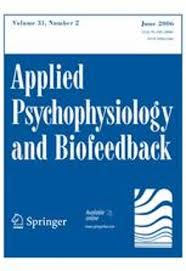
The current study examined the efficacy of heart rate variability (HRV) biofeedback using emWave, a publicly available biofeedback device, to determine whether training affected physiological tone and stress responses. Twenty-seven individuals aged 18–30 years were randomized to a treatment or no-treatment controlgroup. Treatment participants underwent 4–8 sessions of emWave intervention, and all participants attended pre-treatment and post-treatment assessment sessions during which acute stressors were
lees verder...Stress Management Based on Trait-Anxiety Levels and Sleep Quality in Middle-Aged Employees Confronted with Psychosocial Chronic Stress
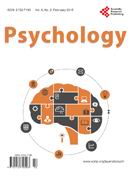
A stress management program using cardiac coherence was implemented after an organizational down-sizing. The study was conducted in nine voluntary workers in order to evaluate the efficiency of the program. A baseline evaluation was conducted on psychological variables (anxiety, perceived-stress, well- being and sleep), endocrine assessments (urinary cortisol excretion, alpha-amylase and salivary concentrations) and physiological recordings (sleep and heart rate variability). The low number of
lees verder...A pilot study of heart rate variability biofeedback therapy in the treatment of perinatal depression

Heart rate variability biofeedback (HRVB) therapy may be useful in treating the prominent anxiety features of perinatal depression. We investigated the use of this non-pharmacologic therapy among women hospitalized with severe perinatal depression. Three questionnaires, the StateTrait Anxiety Inventory (STAI), Warwick–Edinburgh Mental Well-Being Scale, and Linear Analog Self Assessment,were administered to 15 women in a specialized inpatient perinatal psychiatry unit. Participants were also contacted by telephone after discharge
lees verder...Coherence: A Novel Nonpharmacological Modality for Lowering Blood Pressure in Hypertensive Patients

This study examined the efficacy of teaching emotional self-regulation techniques supported by heart rhythm coherence training (emWave Personal Stress Reliever) as a means to quickly lower blood pressure (BP) in patients diagnosed with hyperten-sion. Previous studies have demonstrated systemic reductions in BP in both high stress populations and patients diagnosed with hypertension using this approach, but to the best of our knowledge, an investigation of their ability to produce immediate
lees verder...Biofeedback Intervention for Stress and Anxiety among Nursing Students: A Randomized Controlled Trial

Purpose.It has been well documented that nursing students across the world experience stress and anxiety throughout their education and training. The purpose of this randomized controlled study is to investigate the impact of biofeedback intervention program on nursing students’ levels of stress and anxiety during their first clinical training. Methods.Participants consisted of 60 second-year baccalaureate nursing students. The 30 participants in the biofeedback group received training on how to use the biofeedback device to assist in stress and
lees verder...The effect of a biofeedback-based stress management tool on physician stress: a randomized controlled clinical trial
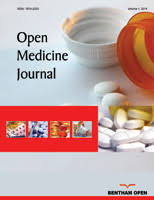
Background: Physicians often experience work-related stress that may lead to personal harm and impaired profes-sional performance. Biofeedback has been used to manage stress in various populations. Objective: To determine whether a biofeedback-based stress management tool, consisting of rhythmic breathing, actively self-generated positive emotions and a portable biofeedback device, reduces physician stress. Design: Randomized controlled trial measuring efficacy of a stress-reduction intervention over 28 days, with a
lees verder...Heart rate variability behavior at different stages of practice in Zen meditation: a study of the system dynamics using multiresolution analysis

The dynamic interactions between the sympathetic and parasympathetic branches of the autonomic nervous system (ANS) are responsible for the oscillations in heart rate known as heart rate variability (HRV). Thus, the importance of HRV as an indirect measure of the autonomic activity is widely known. Meditation is perhaps the best practice to investigate the intrinsic properties of the ANS, since it involves a state of complete physical immobility and absence of voluntary efforts. In this study we analyzed HRV during Zen
lees verder...Pilotonderzoek naar de effectiviteit van een hartritmevariabiliteit-training (Master thesis)

Inleiding: De hartcoherentietraining is gebaseerd op het beïnvloeden van de hartritme-variabiliteit(HRV). Aan de training worden stressverminderende eigenschappen toegekenddie een positieve invloed zouden hebben op het psychisch welbevinden. De hoofdvraag van het huidige onderzoek betreft of de hartcoherentietraining effectief is in het verbeteren van het psychisch welbevinden. De effecten van de hartcoherentietraining zullen worden vergeleken met de effecten van een mindfulnesstraining.
lees verder...Coherence and Health Care Cost -- RCA Actuarial Study: A Cost-Effectiveness Cohort Study

Chronic stress is among the most costly health problems in terms of direct health costs, absenteeism, disability, and performance standards. The Reformed Church in America (RCA) identified stress among its clergy as a major cause of higher-than-average health claims and implemented HeartMath (HM) to help its participants manage stress and increase physiological resilience. The 6-week HM program Revitalize you! was selected for the intervention including the emWave Personal Stress Reliever technology.
lees verder...Coherence training in children with attention-deficit hyperactivity disorder: cognitive functions and behavioral changes

Attention-deficit hyperactivity disorder (ADHD) is the most prevalent behavioral diagnosis in children, with an estimated 500000 children affected in the United Kingdom alone. The need for an appropriate and effective intervention for children with ADHD is a growing concern for educators and child-care agencies. This randomized controlled clinical trial evaluated the impact of the HeartMath self-regulation skills and coherence training program (Institute of HeartMath, Boulder Creek, California) on a population of 38 children with ADHD in
lees verder...Cardiac Coherence and Posttraumatic Stress Disorder in Combat Veterans

Background • The need for treatment of posttraumatic stress disorder (PTSD) among combat veterans returning from Afghanistan and Iraq is a growing concern. PTSD has been associated with reduced cardiac coherence (an indicator of heart rate variability [HRV]) and deficits in early stage information processing (attention and immediate memory) in different studies. However, the co-occurrence of reduced coherence and cognition in combat veterans with PTSD has not been studied before. Primary Study Objective • A pilot study was
lees verder...Project Peak Performance & Reducing Stage Fright

Podiumangst komt veel voor in de beroepspraktijk van musici en wordt vaak niet op een effectieve manier behandeld of onderkend. Een belangrijke reden daarvoor is dat het onderwerp nog steeds met taboe is omgeven. In samenwerking met GGZ Heerenveen en ‘Complete Coaching’, een instituut voor onder meer coaching en psychotherapie, is onder auspiciën van het lectoraat Lifelong Learning in Music &the Artseen onderzoeksproject opgezet, gericht op het omgaan met stress bij studenten van het Prins Claus Conservatorium. Dit project
lees verder...New Hope for Correctional Officers: An Innovative Program for Reducing Stress and Health Risks
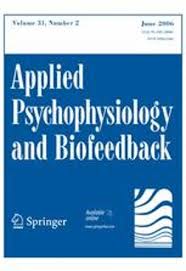
This study investigated the impact of a new stress management program on physiological and psychological stress and health risk factors among 75 correctional officers. The experimental group received training in emotion self-regulation techniques intended to reduce stress and health risk factors. Practice of the techniques was enhanced by heart rate variability feedback, which helped participants learn and sustain use of the self-management tools. Measures of physiological stress included cortisol, DHEA, cholesterol, triglycerides, fasting glucose
lees verder...Kan stress verminderen door het toepassen van hartcoherentie- onderzoek bij moeders van onrustige ki

Samenvatting: In dit onderzoek wordt de mens gezien als een dynamisch systeem, dat functioneert in voortdurend veranderende omstandigheden en streeft naar evenwicht. Binnen de grenzen van een evenwichtstoestand kan het zelfregulerend vermogen de mens in evenwicht houden, maar als de balans door nieuwe of ‘bedreigende’ omstandigheden verstoord raakt, moet een aanpassingsstrategie ontwikkeld en uitgevoerd worden voor herstel van het evenwicht. Deze toestand van onbalans wordt ‘stress’ genoemd en kan zowel op
lees verder...Heart Rate Variability Biofeedback for Major Depression

Heart rate variability for the treatment of major depression is a novel, alternative approach that can offer symptom reduction with minimal-to-no noxious side effects. The following material will illustrate some of the work being conducted at our laboratory to demonstrate the efficacy of heart rate variability. Namely, results will be presented regarding our published work on an initial open-label study and subsequent results of a small, unfinished randomized controlled trial. Autonomic nervous system (ANS) dysfunction
lees verder...Electrophysiological Evidence of Intuition: Part 1. The Surprising Role of the Heart

Objectives: This study aims to contribute to a scientific understanding of intuition, a process by which information normally outside the range of conscious awareness is perceived by the psychophysiological systems. The first objective, presented in two empirical papers (Part 1 and Part 2), was to replicate and extend the results of previous experiments demonstrating that the body can respond to an emotionally arousing stimulus seconds before it is actually experienced. The second objective, to be presented in a third paper (Part 3), is
lees verder...Electrophysiological Evidence of Intuition: Part 2. A System-Wide Process?

Objectives: This study aims to contribute to a scientific understanding of intuition, a process by which information normally outside the range of conscious awareness is perceived by the body’s psychophysiological systems. The first objective, presented in two empirical reports (Part 1 and Part 2), was to replicate and extend the results of previous experiments demonstrating that the body can respond to an emotionally arousing stimulus seconds before it is actually experienced. The second objective, to be presented in a forthcoming
lees verder...A Controlled Pilot Study of Stress Management Training of Elderly Patients With Congestive Heart Failure
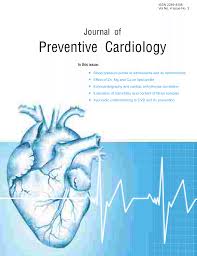
The purpose of this study was to evaluate the effect of stress management training on quality of life, functional capacity, and heart rate variability in elderly patients with New York Heart Association classI–III congestive heart failure (CHF). While substantial research exists on stress management training for patients with coronary heart disease, there are few data on the value of psychosocial training on patients with CHF. Thirty-three multi ethnic patients (mean age, 66±9 years) were assigned through incomplete randomization to one of two
lees verder...The Impact of a New Emotional Self-Management Program on Stress, Emotions, Heart Rate Variability, DHEA and Cortisol
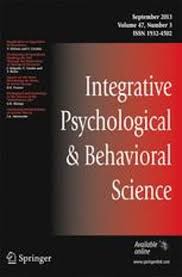
This study examined the effects on healthy adults of a new emotional self-management program, consisting of two key techniques,"Cut-Thru" and the "Heart Lock-In." These techniques are designed to eliminate negative thought loops and promote sustained positive emotional states. The hypotheses were that training and practice in these techniques would yield lowered levels of stress and negative emotion and cortisol, while resulting in increased positive emotion and DHEA levels over a one-month period. In addition, we
lees verder...The Effects of Emotions on Short-Term Power Spectrum Analysis of Heart Rate Variability

This study utilizes heart rate variability analysis to examine a new method of intentionally shifting emotional states, and demonstrates that positive emotions lead to alterations in sympathovagal balance that may be beneficial in the treatment of hypertension. Anger, on the other hand, was shown to significantly increase sympathetic activation.
lees verder...The Effects of Emotions on Short-Term Power Spectrum Analysis of Heart Rate Variability

Introduction: This study utilizes HRV analysis to examine a new method of intentionally shifting emotional states, and demonstrates that positive emotions lead to alterations in sympathovagal balance that may be beneficial in the treatment of hypertension. Anger, on the other hand, was shown to significantly increase sympathetic activation.
Summary: Salivary IgA, heart rate and mood were measured in thirty individuals before and after experiencing care or anger. Two methods

